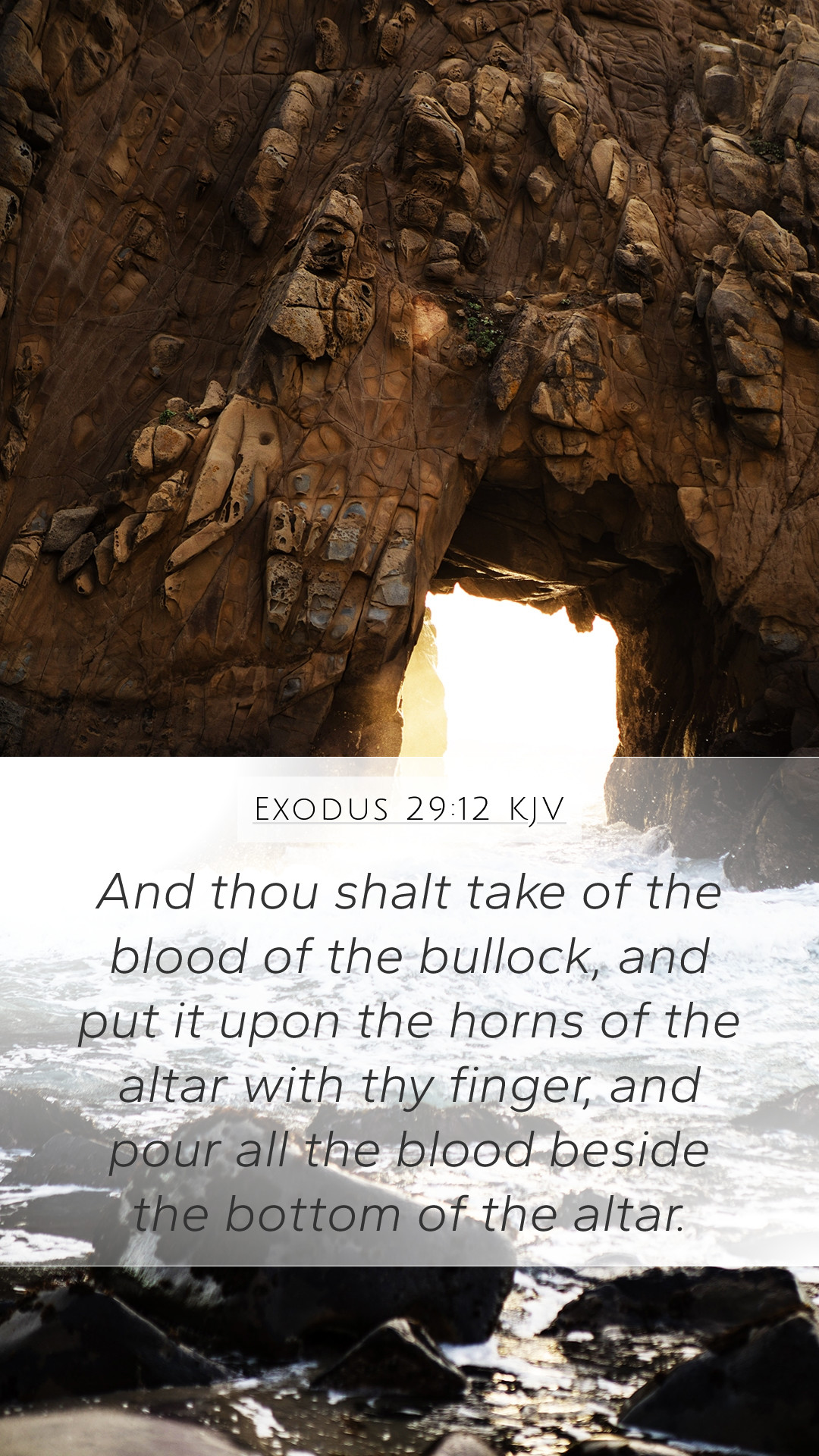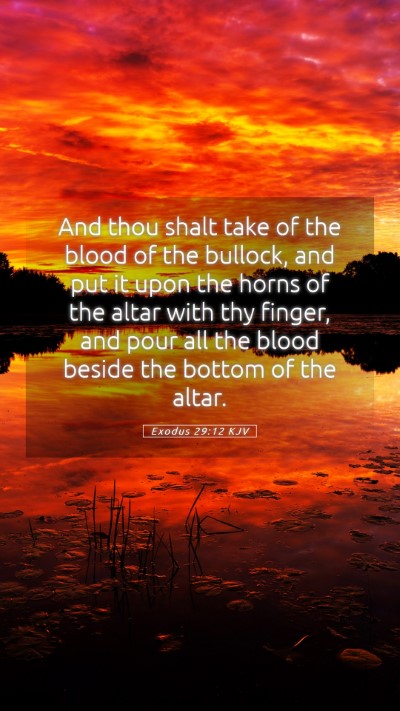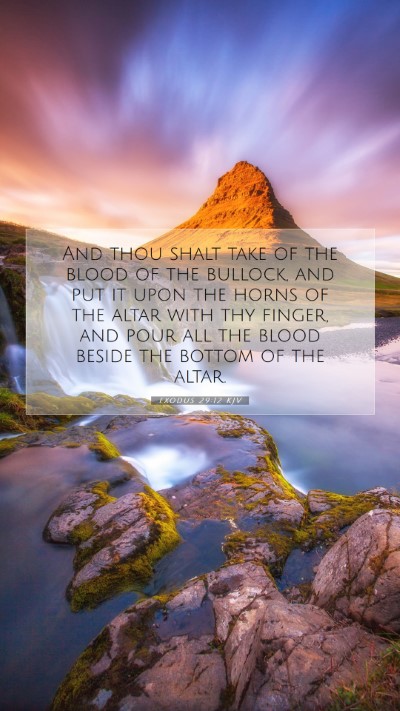Understanding Exodus 29:12
Exodus 29:12 is an important verse in the Old Testament that provides insight into the sacrificial system established for the Israelites. In this verse, we find directions regarding the consecration of the priests, particularly focusing on the act of offering a bull as a sin offering. This is significant in understanding the broader context of atonement within Scripture.
Bible Verse Commentary
According to Matthew Henry's Commentary, this verse emphasizes the necessity of making a sin offering for the priests. The act underscores the need for purification and consecration before they could serve in the sanctuary. Sin offerings were critical to the ancient Israelite's relationship with God, highlighting the need for sacrifice in the process of atonement.
Albert Barnes further elaborates that the blood of the offering, which was to be placed on the horns of the altar, symbolizes the life of the sacrificial animal being given to God. This act of offering not only demonstrates reverence but also acknowledges the seriousness of sin. The application of the blood signifies the cleansing power of sacrifice, foreshadowing the ultimate sacrifice of Christ.
Adam Clarke offers a rich historical context for Exodus 29:12, noting that the establishment of Aaron and his sons as priests required a ceremonial cleansing. Clarke draws attention to the ritual's importance in setting a precedent for future worship and the fulfilling of God’s covenant. This act of consecration through sacrifice is pivotal in the redemptive narrative throughout the Scriptures.
Significance of Exodus 29:12
This verse is significant as it illustrates the theme of atonement in the Bible. The practice of making offerings and sacrifices was central to the Mosaic Covenant and serves as a foundation for understanding later New Testament theology. The concept symbolizes the need for redemption and the holiness of God, which requires purification through sacrifice.
Application of Exodus 29:12
In contemporary application, this verse invites us to consider the seriousness of sin and our approach to God. It encourages the reflective practice of contrition and the acknowledgment of our need for cleansing in our spiritual lives. The sacrifice of Jesus Christ is the fulfillment of these Old Testament offerings, which can be appreciated through Bible study insights today.
Bible Verse Interpretations
Exodus 29:12 is frequently explored in Bible study groups, where participants examine themes of covenant, sacrifice, and atonement. Each study session offers an opportunity to delve deeper into the historical context of Bible verses and their relevance in our lives. By understanding such verses, we can draw parallels between ancient practices and modern faith.
Cross References
- Leviticus 4:3-12 - Further details regarding sin offerings.
- Hebrews 9:22 - Discusses the necessity of blood for forgiveness.
- Romans 3:25 - Explains Jesus as a propitiation for our sins.
- Exodus 30:10 - Instructions regarding atonement shall be made annually.
- Hebrews 10:4 - Indicates that the blood of bulls cannot take away sins.
Conclusion
In conclusion, Exodus 29:12 invites profound Bible verse explanations and interpretation. Recognizing the symbolism of sacrifice within this verse not only enriches one’s Bible study lessons but also allows contemporary believers to appreciate the weighty implications of atonement through Christ. By engaging with such passages, we can better understand Scripture and its transformative power in our lives.


